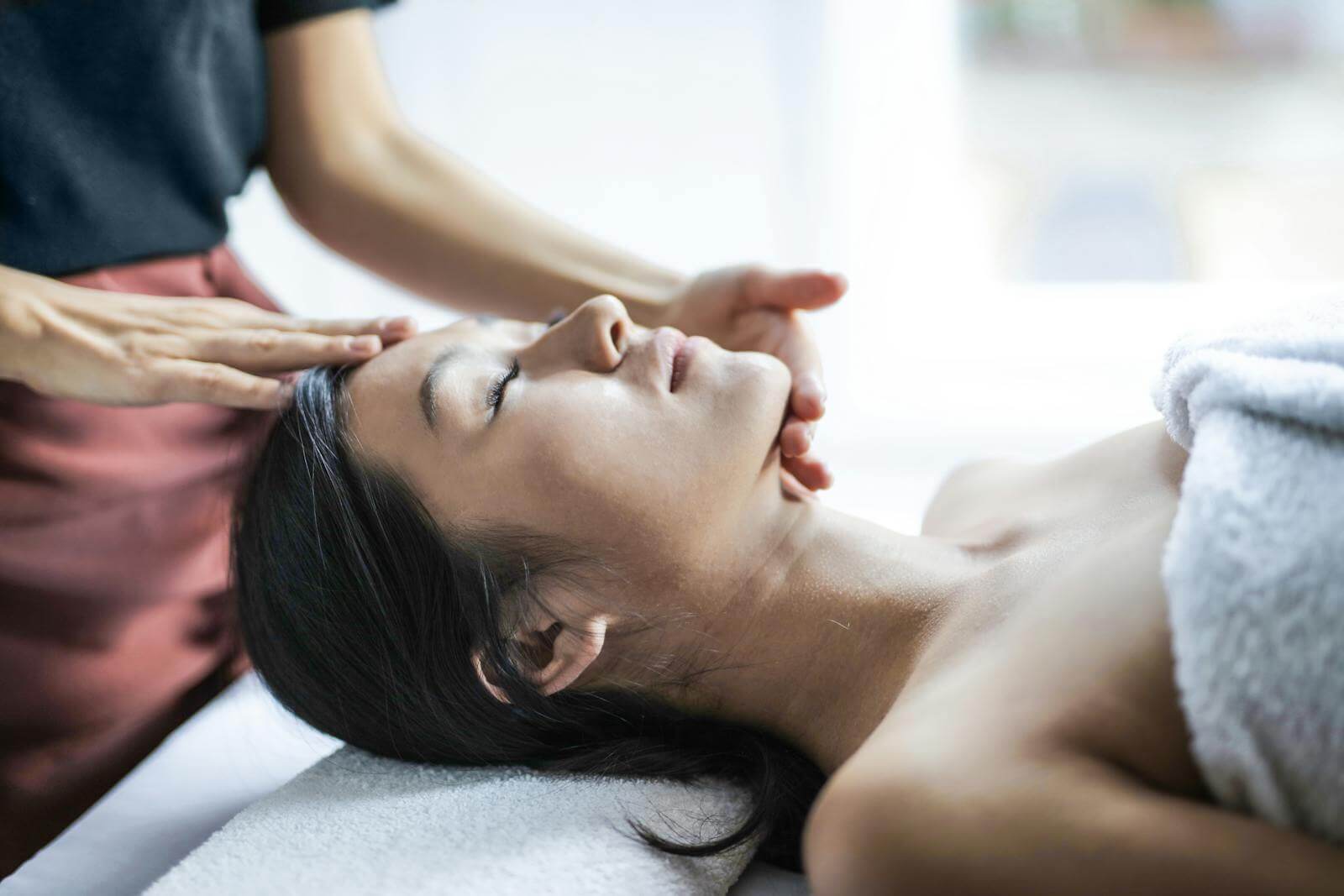
Do You Feel Super Nervous Sometimes? Let’s Make Some Calm!
Hey there! Do you ever feel like your stomach is full of jumpy frogs when you get nervous? Lots of people do. It’s pretty normal to feel a bit anxious now and then. But wouldn’t it be awesome if you could make something right at home to help with those wiggly feelings? You can! It’s like having a little magic in your kitchen. We’re going to talk about making your own herbal remedies that might help you feel more chill.
Herbs Are Like Quiet Friends from Nature
Herbs are plants that can do cool things for our bodies. Some can make us feel calmer. Remember, these are not strong medicines from the doctor; they’re gentle helpers from nature.
Tea Time, Cool Time
Making a soothing cup of tea is a great way to start. You’ll need a grown-up to help you with the hot water, okay? Here are a couple of herbs that can be your tea buddies:
Chamomile
This little flower is pretty and tiny. It’s like a mini sun with white petals. Chamomile tea might help make your worries feel a bit smaller. You can buy chamomile tea bags or loose flowers at most stores. Put the tea in a cup, pour hot water over it, then wait for about five minutes. After that, it’s ready to sip. Just be sure to test the temperature so you don’t burn your tongue!
Lavender
Lavender isn’t just a pretty purple plant; it has a super calming smell, too. When you’re feeling the butterflies in your belly, a cup of lavender tea might give them a little rest. For this one, you use the buds, the small parts that bloom. Like chamomile, you let them swim in hot water for a few minutes, then it’s ready to drink.
Sniff Sniff, Ahhh…
Smells can change how we feel. Have you noticed how a whiff of cookies baking can make you smile? Some herb smells can help our minds calm down. Here’s how you can make a smell-sational surprise:
Herbal Sachets
A sachet is a small bag full of nice-smelling stuff. You can use a tiny sock or a piece of cloth tied with a string. Pop in some dried lavender, a pinch of chamomile, and maybe even a little bit of dried mint. When you’re feeling anxious, take out your sachet and take a deep sniff.
Make a Magical Garden, No Gnomes Needed
If you have a little bit of space and some sunlight, you could grow these herbs. It’s fun to watch them grow, and it’s like they are your little green pals. Taking care of plants is also a way to take care of yourself. Plus, you won’t need to go to the store for your teas and sachets; you’ll have your own supply!
Let’s Be Safe!
Okay, here’s the serious bit. Always talk to grown-ups before you try these herbal helpers, especially if you are already taking medicine or have health troubles. And get an adult to help you with the hot water and scissors.
What Do the Grown-Ups Think?
Grown-ups like scientific proof, and that’s okay. They should know that studies on these herbs aren’t like huge mega-tests with a zillion people. But a lot of grown-ups and kids say these herbs help them. And there’s a bunch of history of people using them for a very long time. Luckily, these herbs are usually seen as pretty safe. So, it might be worth giving them a try with an adult’s help.
Feeling nervous is something we all go through, and having your own special remedy can be a sweet tool in your feel-good toolbox. Whether it’s tea-time, sniffing your sachet, or watching your herbal buddies grow, there’s something cool about saying, “Hey, I made that, and it helps!” Remember, if your anxious feelings are really big and won’t go away, the best thing to do is talk to a parent, teacher, or doctor. Oh, and enjoy the calm that your new herbal friends can bring!
What are some common herbs used to reduce anxiety?
Many folks turn to chamomile and lavender for a calming effect. Chamomile is like a cozy blanket in tea form, often easing the mind. Lavender, on the other hand, smells like a peaceful garden, and can be a real nose pleaser when feeling stressed.
Another go-to is lemon balm, which sort of acts like a cheerful friend for your nervous system. Plus, there’s valerian root; with a scent that’s acquired taste, it’s like a gentle nudge telling your brain to chill out at bedtime.
How can I use these herbs to tackle my anxiety?
You don’t need to be a wizard to whip up some soothing potions. Steep chamomile or lemon balm leaves in hot water for a simple, calming tea. Remember, it’s about giving yourself a moment to unwind as you sip.
Lavender’s great to have around, too. Dabbing some essential oil on your pillow or in a diffuser can turn your room into a tranquil retreat. Oh, and it doesn’t hurt to have a valerian capsule before bed if you want some good z’s.
Are there DIY remedies I can easily make at home?
Sure thing! For a stress-zapping tea, dry some lemon balm and chamomile, stash them in a jar, and break out a spoonful when you’re feeling frazzled. Steep it, kick back, and take a deep breath. It’s about simple steps to a calmer you.
Or mix dried lavender with some epsom salts for a bath that’s like a mini-vacation. Just soak in the tub and let the day’s worries go down the drain. Remember, the key to these home remedies is taking it easy while you make and use them.
Can these herbs really help with anxiety, or is it just placebo?
There’s some real science behind the soothing powers of these herbs. Studies have shown chamomile might take the edge off for some folks. Lavender, too, has research backing up its stress-relieving creds.
But hey, if believing in the remedy’s power helps you feel better, then that’s a win. The combo of the herb’s effects and your belief can make a pretty strong team against anxiety.
Are there risks to using herbal remedies for anxiety?
Just like any remedy, herbal ones have their own rulebook. For most people, using herbs like chamomile or lavender is usually pretty safe. But sometimes, they don’t play nice if you’re taking certain meds or have allergies.
It’s also worth remembering herbs aren’t a one-size-fits-all fix. What helps one person might not be a hit for another. So, always check with your healthcare buddy, especially if you’re already dealing with health stuff or you’re thinking of going all-in on herbal remedies.
Key Takeaways
- Herbal remedies can be a natural way to manage anxiety. Many people prefer them over pharmaceuticals due to fewer side effects.
- Common herbs used for anxiety include chamomile, lavender, and valerian root. These herbs have been used for centuries in various cultures.
- Chamomile can be consumed in tea form and is known for its calming effects. It’s great for winding down before bedtime or managing daily stress.
- Lavender is often used in aromatherapy. Its scent is soothing and can be helpful in creating a peaceful environment. You can use it in oils, sachets, or even in your bath.
- Valerian root is another powerful herb that promotes relaxation and better sleep. It’s usually taken as a supplement or tincture and is great for intense stress relief.
- Making your own herbal remedies allows you to control the ingredients and dosages, adjusting it to what works best for your body and anxiety levels.
- It’s important to remember that while herbal remedies can be effective, they’re not a cure-all. They should be used in combination with other healthy practices like proper diet, exercise, and enough sleep.
- Before starting any herbal regimen, check with a healthcare provider, especially if you’re pregnant, nursing, or taking other medications. Herbs can interact with other drugs and may not be suitable for everyone.
- DIY remedies, such as teas and tinctures, are not only cost-effective but can also offer a fulfilling experience as you learn and connect with the healing properties of plants.
Final Thoughts
Creating your own herbal remedies for anxiety is like having a calming superpower. We’ve gone through herbs like chamomile and lavender that are basically hugs in plant form. Making teas or infusions with these can be a game-changer for rattled nerves. Remember, though, that plants are powerful, and it’s wise to chat with a healthcare pro before you dive in.
Experimenting with doses and blends is part of the fun, but it’s serious business too. Start small and always listen to your body – it’s the best guide you’ve got. And even though these remedies come from nature, they’re not an instant fix. But with patience and a little bit of green-thumb magic, you can whip up something that might just help keep the anxiety monsters at bay.






